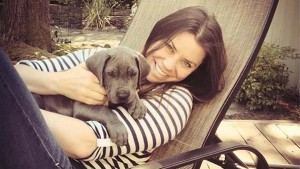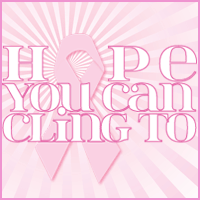
It has been a while since I have stopped by here. Today, however, I just really feel like I need to put some thoughts down…adding to the plethora of articles and online chatter surrounding a beautiful young woman who chose to end her life this past weekend.
I first heard about Brittany Maynard on Facebook (of course) as her plans to “die with dignity” were being discussed by people of many different backgrounds. I’m not even sure how my Facebook friend felt about the issue, because she just linked an article and typed “so sad.” Certainly, many in the media were heralding her choice as “heroic.”
Indeed, Brittany’s story is very sad. It is very sad that this previously healthy and independent young woman was diagnosed with terminal cancer. It is sad that she experienced intense headaches and other symptoms which impacted her day-to-day life. In fact, the first comment that struck me from Brittany herself was how she was going to lose control over her body. She wanted to reclaim that control by deciding when to die. Brittany, sadly, interpreted physical illness and dependence upon others as a sign of personal weakness that she could not bear. She could not see that, in her need, she could have actually inspired many people to reach out to help her. In other words, our times of need provide others with a time to serve.
But in my opinion, it is most sad that Brittany Maynard had no Hope.
Rejoice in hope, endure in affliction, persevere in prayer. Romans 12:12
Our hope for you is firm, for we know that as you share in the sufferings, you also share in the encouragement. 1 Corinthians 1:7
I do not intend to belittle the suffering of this beautiful woman, or others with terminal illness. I cannot imagine the pain many of them feel, or the excruciating struggles of chemotherapy, radiation, and other invasive treatments. I have friends and family members who have suffered, and some eventually lost their battles. I get that.
But in the midst of extreme pain, there is often joy…even peace. A former co-worker was battling with breast cancer at the same time her husband had lung cancer. The way she dedicated her life to God’s Will is something I will never forget! She knew God might take her any time, but He also might heal her. Her hope in the healing power of God made a world of difference in her recovery. Even her oncologist acknowledged how remarkable her attitude was! Now that is truly heroic! Facing her illness instead of running away from it. Years later, this woman is still feisty as ever! She and her husband are still active in their church and are now retired, enjoying visits with grandkids every chance they get.
 So what does this have to do with card making? Well, each year on my favorite paper crafting site, stampers are encouraged to make cards in October for Breast Cancer Awareness Month. The series of challenges (techniques, colors, etc.) are known as “Hope You Can Cling To.” HOPE. Many of us sent cards to a cancer treatment center in Texas; others to centers in their area. The intent is to share the cards with family and friends so that they can pass along HOPE to their loved ones facing the ugly diagnosis of cancer.
So what does this have to do with card making? Well, each year on my favorite paper crafting site, stampers are encouraged to make cards in October for Breast Cancer Awareness Month. The series of challenges (techniques, colors, etc.) are known as “Hope You Can Cling To.” HOPE. Many of us sent cards to a cancer treatment center in Texas; others to centers in their area. The intent is to share the cards with family and friends so that they can pass along HOPE to their loved ones facing the ugly diagnosis of cancer.  Many of us have been touched by this disease, and we don’t want people to feel alone or to feel hopeless. It is a small gesture, but it often makes a big impact.
Many of us have been touched by this disease, and we don’t want people to feel alone or to feel hopeless. It is a small gesture, but it often makes a big impact.
I doubt that a pretty hand-crafted card would have changed Brittany Maynard’s mind about ending her life. But perhaps if someone close to her…her mother, her husband…had been given more encouragement, they could have passed it along to her. I know countless people, including cancer survivors, tried to reach out to the family. But everyone was up against a law and a system focused on despair. Physician assisted suicide doesn’t help people “die with dignity,” it robs them of hope.
So what can we do?
Always be ready to make a defense to anyone who demands from you an accounting for the hope that is in you. 1 Peter 3:15
First, we must pray for families who are dealing with severe illness. When possible, we should reach out with tangible support…such as providing meals, house cleaning, transportation. If individuals and families know that there will be assistance, then maybe they would not be so overwhelmed. And by helping directly, we are saying that we are scared of or repulsed by illness and debilitating disease. By being present, we say that this someone still has a life worth living. In my mind, that is true for everybody.